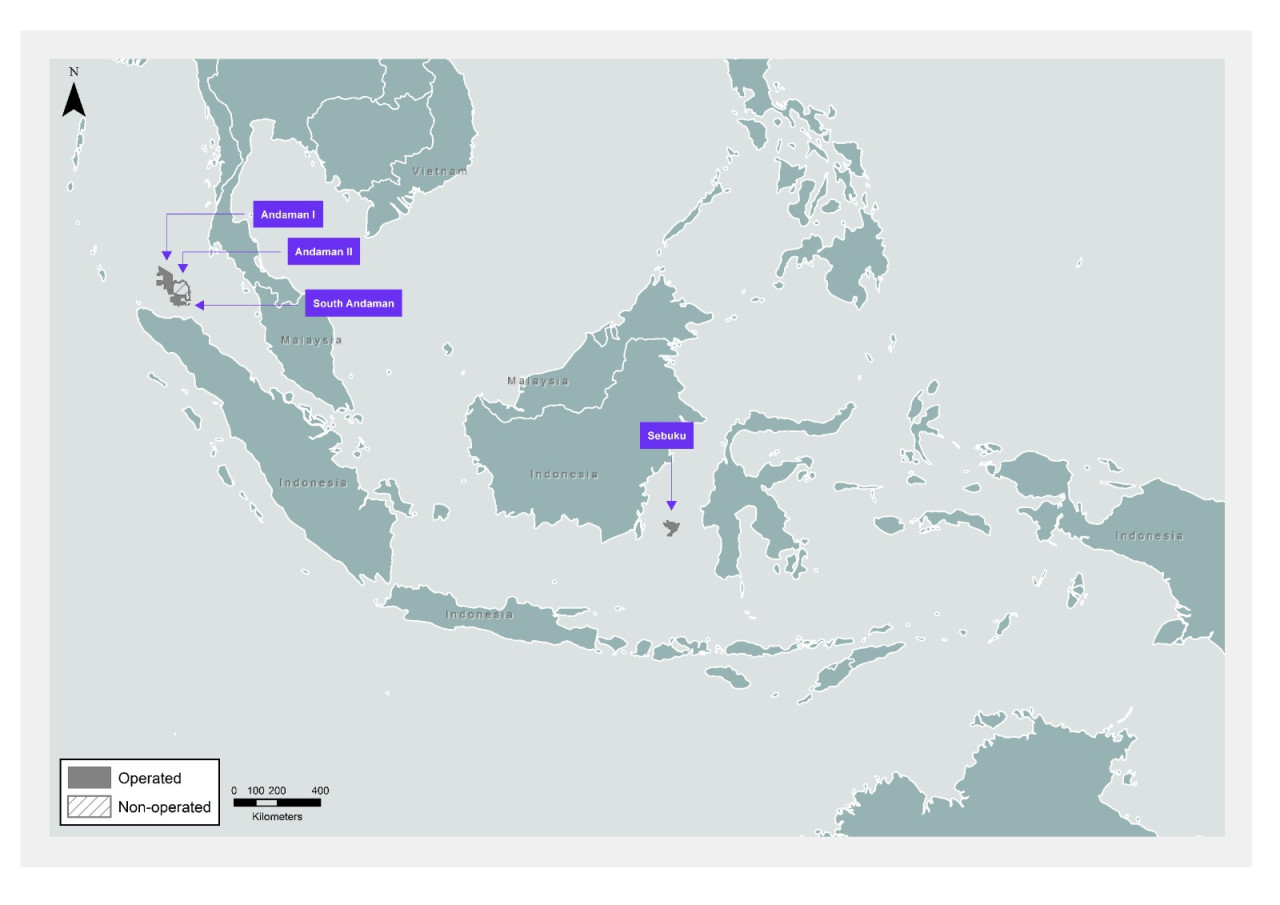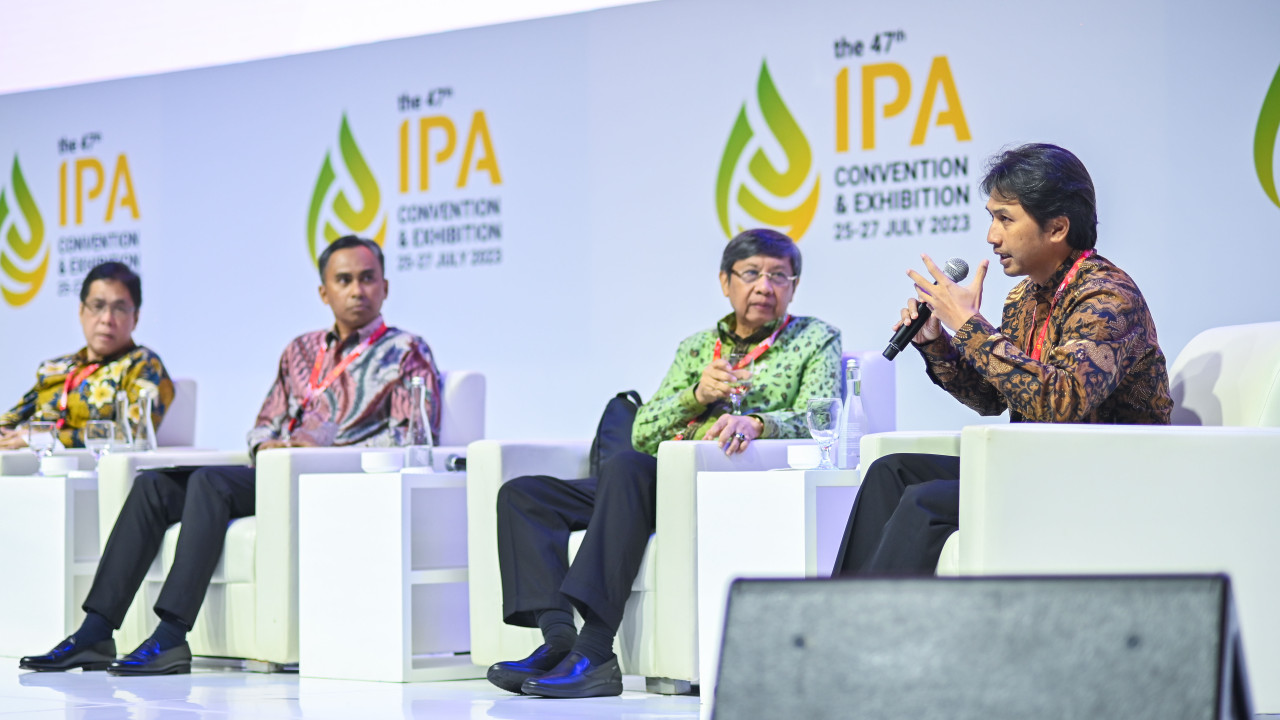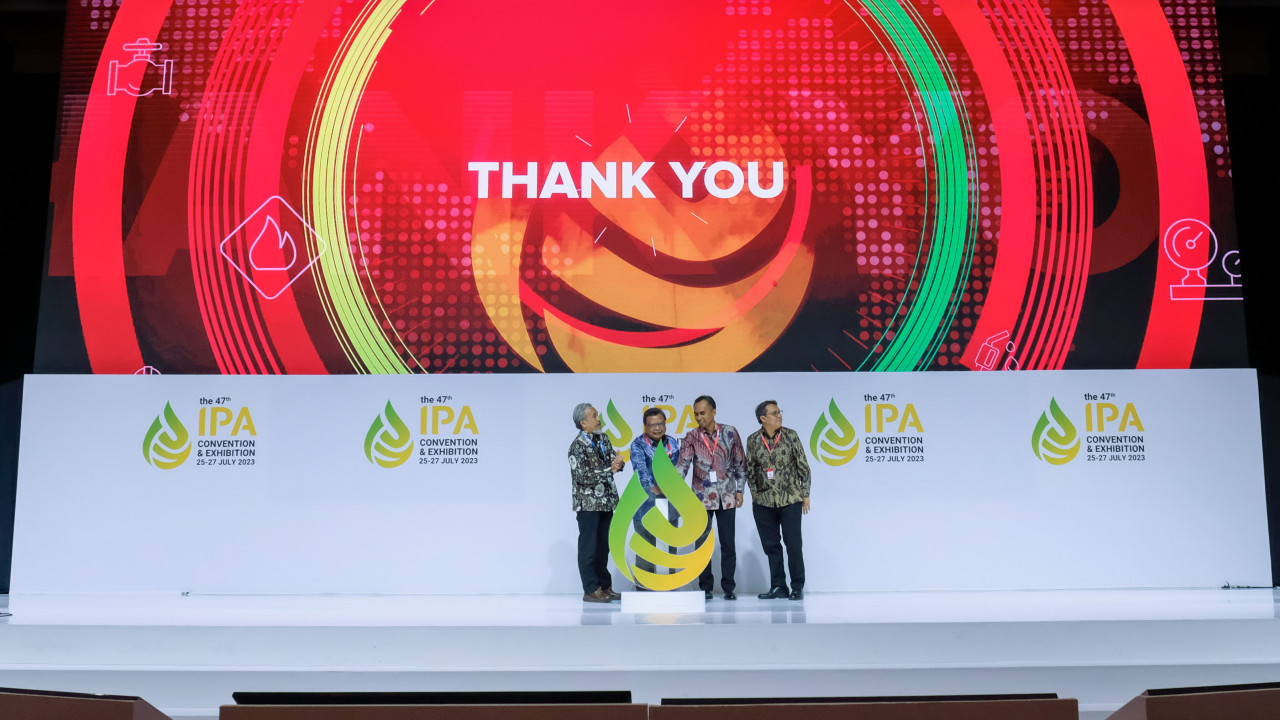IPA CONVEX 2017 PLENARY SESSION - Re-attracting Upstream Oil and Gas Investment amidst the Global Capital Efficiency Drive
The plenary session consisted of comprehensive question and answer session covering many of the key issues and solutions to re-attract investment to Indonesia during the global capital efficiency drive. H.E. Ignatius Jonan, Minister of ESDM, emphasized the long-term nature of the industry and recognized that industry requires a return on investment in this challenging environment. He has instructed SKK Migas to speed up business processes but noted that it is also important for the industry to be competitive, adding that if domestic production costs are higher than international prices, then Indonesia will continue to import.
In terms of the fiscal regime, the government is flexible and willing to negotiate to re-attract the capital investment that the country needs. He encouraged industry to share their data and work with government to reform those regulations that are needed to improve the economics of new project and field developments. Other key points made by the Minister in response to questions from the Moderator and from the audience were as follows:
- Renewables – the industry needs to address renewables seriously as competition between conventional resources and renewables will be increasing in future
- Licensing – he recognizes that licensing activity is a slow process in Indonesia and is encouraging the regulatory authorities to speed up the process
- Urgency for reform – The minister recognizes that the upstream industry urgently requires reforms and assistance from government to speed up investment – government are checking input received on these issues and reviewing support levels needed and incentives required
- IPA Input – made the statement that he has asked the IPA for input on potential saving that can be made to make the industry more competitive
- Return on Investment – stated that he is open for discussion on what ROI is required in Indonesia by contractors and in contrast, what will work for the government
- Oil and Gas Law – discussions have been ongoing on an informal basis but will now move to a more formal stage and he is confident that new law will be finalized by end 2017 following further discussions with the DPR. Made the statement that the issue is not the timing, it’s the amendment itself and that extended discussions are likely
- Incentives to develop Eastern Indonesia – the Minister stated that the Gross Split scheme is the incentive that is needed as it is not a fixed rate and can slide up and down depending on the difficult of the exploration / field location – also made the comment that output cannot be higher than the global oil price, otherwise Indonesia will continue to import
- 10% Participating Interest – in response to a question on how to educate regional government to recognize the multiplier effect, the Minister said that for any new contracts, the contractor should allocate 10% participating interest to the regional government and in this way, the effect is “real”, as opposed to CSR activities which he considers “old fashioned”.
- Exploration data – stated that he feels this is important to provide reliable and quality data and that the government will be as transparent as possible when issuing data for review by prospective contractors.
Industry representatives on the panel also outlined the changes that have been taking place in the upstream industry around the world and that Indonesia is now competing for capital on a global basis. Improvements that are needed include supply chain improvements, bringing stakeholders together to expedite decision making and providing clarity on contract extensions.
Christina Verchere, IPA President, added that investors recognize that Indonesia is open for foreign investment but that an improved fiscal structure and contract sanctity are vital to make Indonesia more competitive. She added that although efficiency and bureaucracy improvements are welcomed by the IPA and its member companies, economic drivers are the critical factor now for external investors to bring in the capital that is needed to support economic growth. In summary, panelists agreed that industry and government, including all related Ministries, need to continue to work together to identify solutions to re-attract the capital investment that the sector needs.



